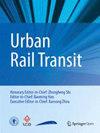《记忆和神学》、《隐居群里》:乌休拉《移民儿童》(1985年)和《1990年》
IF 2.9
4区 工程技术
Q4 TRANSPORTATION
引用次数: 0
摘要
本文展示了文学研究如何有助于更深入地理解边界的文化意义,尤其是通过探索马克·索尔特的“边界的表演性,边界通过实践被赋予意义的方式”的概念,在这些文化边界内的两个相互关联的作品中。东德作家厄休拉Höntsch在她的半自传体小说《维尔·弗莱本文章由计算机程序翻译,如有差异,请以英文原文为准。
Contested Memory and Narrative within GDR-Polish Intercultural Landscapes: Ursula Höntsch’s Wir Flüchtlingskinder (1985) and Wir sind keine Kinder mehr (1990)
This article demonstrates how literary studies can contribute to a deeper understanding of the cultural significance of borders, not least by exploring Mark Salter’s concept of the “performativity of the border, the ways that borders are given meaning through practices” in two interlinked works set within these cultural borderlands. In her semi-autobiographical novels Wir Flüchtlingskinder (1985) and Wir sind keine Kinder mehr (1990), the East German writer Ursula Höntsch, unknowingly writing in the final years of the country’s existence, challenges traditional GDR depictions of the German-Polish relationship and offers a dynamic exploration of personal, cultural and political “bordering and de-bordering” (Parker and Vaughan-Williams). Unusually for GDR literature, Höntsch presents Poland as an alternative political reality from which the GDR, still seeking to embody “socialism on German soil,” might learn. Taking as a starting-point the migrant experience of Höntsch’s protagonist and the subsequent cross-border friendship she develops, the article explores the limitations of externally imposed geo-political borders in shaping identity and controlling individual agency within contested spaces of cultural and communicative memory (Jan Assmann, 1988 and Aleida Assmann, 2016). The article concludes that Höntsch’s conscious exploitation of diverse genre forms and narrative voices, linguistic variation and intertextuality constitutes a creative engagement with the very fluidity of narrative boundaries that itself represents an exemplar of Salter’s border performativity.
求助全文
通过发布文献求助,成功后即可免费获取论文全文。
去求助
来源期刊

Urban Rail Transit
Multiple-
CiteScore
3.10
自引率
6.70%
发文量
20
审稿时长
5 weeks
期刊介绍:
Urban Rail Transit is a peer-reviewed, international, interdisciplinary and open-access journal published under the SpringerOpen brand that provides a platform for scientists, researchers and engineers of urban rail transit to publish their original, significant articles on topics in urban rail transportation operation and management, design and planning, civil engineering, equipment and systems and other related topics to urban rail transit. It is to promote the academic discussions and technical exchanges among peers in the field. The journal also reports important news on the development and operating experience of urban rail transit and related government policies, laws, guidelines, and regulations. It could serve as an important reference for decision¬makers and technologists in urban rail research and construction field.
Specific topics cover:
Column I: Urban Rail Transportation Operation and Management
• urban rail transit flow theory, operation, planning, control and management
• traffic and transport safety
• traffic polices and economics
• urban rail management
• traffic information management
• urban rail scheduling
• train scheduling and management
• strategies of ticket price
• traffic information engineering & control
• intelligent transportation system (ITS) and information technology
• economics, finance, business & industry
• train operation, control
• transport Industries
• transportation engineering
Column II: Urban Rail Transportation Design and Planning
• urban rail planning
• pedestrian studies
• sustainable transport engineering
• rail electrification
• rail signaling and communication
• Intelligent & Automated Transport System Technology ?
• rolling stock design theory and structural reliability
• urban rail transit electrification and automation technologies
• transport Industries
• transportation engineering
Column III: Civil Engineering
• civil engineering technologies
• maintenance of rail infrastructure
• transportation infrastructure systems
• roads, bridges, tunnels, and underground engineering ?
• subgrade and pavement maintenance and performance
Column IV: Equipments and Systems
• mechanical-electronic technologies
• manufacturing engineering
• inspection for trains and rail
• vehicle-track coupling system dynamics, simulation and control
• superconductivity and levitation technology
• magnetic suspension and evacuated tube transport
• railway technology & engineering
• Railway Transport Industries
• transport & vehicle engineering
Column V: other topics of interest
• modern tram
• interdisciplinary transportation research
• environmental impacts such as vibration, noise and pollution
Article types:
• Papers. Reports of original research work.
• Design notes. Brief contributions on current design, development and application work; not normally more than 2500 words (3 journal pages), including descriptions of apparatus or techniques developed for a specific purpose, important experimental or theoretical points and novel technical solutions to commonly encountered problems.
• Rapid communications. Brief, urgent announcements of significant advances or preliminary accounts of new work, not more than 3500 words (4 journal pages). The most important criteria for acceptance of a rapid communication are novel and significant. For these articles authors must state briefly, in a covering letter, exactly why their works merit rapid publication.
• Review articles. These are intended to summarize accepted practice and report on recent progress in selected areas. Such articles are generally commissioned from experts in various field s by the Editorial Board, but others wishing to write a review article may submit an outline for preliminary consideration.
 求助内容:
求助内容: 应助结果提醒方式:
应助结果提醒方式:


